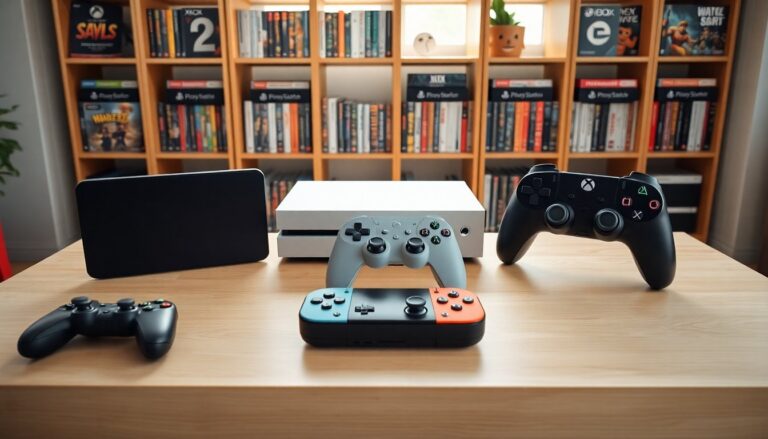Argomenti trattati
The landscape of gaming consoles has undergone significant transformation over recent decades. This evolution has led to intense competition among major players such as Sony, Microsoft, and Nintendo. Each company has designed unique consoles that cater to various gamer preferences, intensifying the battle for market dominance. This article explores the current state of the gaming console war, analyzing the strengths and weaknesses of each platform.
The key players in the gaming console arena
The three giants in the gaming console sector are PlayStation, Xbox, and Nintendo. Each has established a distinct identity, appealing to diverse demographics and gaming preferences. Understanding these unique offerings enables consumers to make informed choices and shapes the future trajectory of gaming.
PlayStation: the powerhouse of exclusives
Since the release of its first console in 1994, PlayStation has emerged as a leading force in the gaming industry. The brand is well-known for its high-quality exclusive titles that significantly drive console sales. Iconic games such as The Last of Us, God of War, and Spider-Man not only feature exceptional storytelling but also showcase advanced graphics and innovative gameplay mechanics.
Furthermore, the launch of the PlayStation 5 has reinforced Sony’s market position with impressive performance specifications. Its custom SSD enables lightning-fast load times, which enhances the user experience and allows gamers to fully engage with immersive virtual worlds.
Xbox: The champion of services
Microsoft’s Xbox has consistently prioritized the development of a comprehensive ecosystem that serves gamers. The introduction of the Xbox Game Pass exemplifies this commitment, offering players access to an extensive library of games for a monthly subscription fee. This model appeals to gamers seeking diverse gaming experiences without significant financial investment.
The Xbox Series X features remarkable hardware capabilities, such as support for 4K gaming and high frame rates. However, its standout feature is the integration of Xbox Cloud Gaming. This functionality enables gamers to enjoy their favorite titles across multiple devices, significantly improving accessibility and flexibility.
Nintendo: The innovator of gaming experiences
Nintendo has established itself as a leader in gaming innovation, despite not matching the raw processing power of its competitors. The Nintendo Switch exemplifies this commitment, providing a hybrid gaming experience that caters to both home and mobile play. This unique versatility resonates with casual gamers and families alike, contributing to its widespread popularity.
Unique game offerings
Nintendo has established itself as a leader in the gaming industry through its exclusive franchises, such as Mario, Zelda, and Pokémon. These titles have transcended mere entertainment, evolving into cultural icons that evoke nostalgia among players across generations. The company excels in crafting engaging, family-friendly games that promote social interaction and shared experiences.
Moreover, Nintendo’s dedication to innovation is reflected in its distinctive control schemes and gameplay mechanics. The Joy-Con controllers for the Switch enable motion controls and local multiplayer, enhancing the interactive nature of gaming. This approach not only enriches the player experience but also fosters community engagement.
The future of gaming consoles
The competition among major gaming companies continues to intensify. Each organization is actively evolving and adjusting to emerging technologies and consumer preferences. Virtual reality, augmented reality, and cloud gaming represent significant investment areas for these companies as they strive to maintain a competitive edge.
The rise of cross-platform gaming has transformed the landscape of console rivalry. Gamers increasingly desire the ability to play with friends across different platforms, fostering a more inclusive and collaborative gaming experience.
Consumer loyalty and market trends
Consumer loyalty is increasingly vital in determining which gaming console leads the market. As gamers become more discerning, they will seek platforms that offer not only superior hardware but also engaging software and services. Brands that effectively address these evolving preferences are likely to succeed in this competitive landscape.
The gaming console market is defined by a complex interplay of technology, exclusive titles, and services. As PlayStation, Xbox, and Nintendo compete for market dominance, gamers can anticipate ongoing innovation and competition, ultimately benefiting the entire gaming community.

